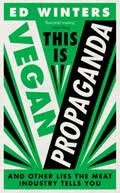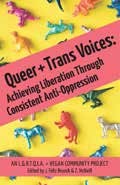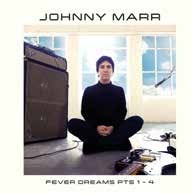REVIEWS

This is Vegan Propaganda by Ed Winters, reviewed by Jude Whiley-Morton
Imagine: a new disease emerges in Asia. Resulting from animal exploitation, the virus will spread throughout the continent before travelling to the Middle East, Africa and Europe, killing many of those it infects. This is not Covid-19, but H5N1. Chronicled by Ed Winters in his debut book This is Vegan Propaganda, this avian flu strain is one example of the consequences of animal exploitation. The difference?
H5N1 is 60 times more lethal than Covid-19. Though H5N1 was suppressed, the risk is still out there. To avoid such a pandemic, Winters explains, “We have no choice” but to go vegan.

With his lectures gathering over 35 million views online, Ed Winters is a talented communicator. This is Vegan Propaganda may be capable of converting hardcore carnivores. Written in an accessible style, Winters traces the impact of animal farming on everything from our health to the industry’s influence on government policy.
Winters’ desire to convert people may, however, be hampered by the book’s formatting. Despite acknowledging descriptions of animal cruelty as a turn-off for non-vegan readers, the first 50 pages of his book include such details.
This is an obstacle to the book’s most influential points, those effects of animal exploitation which appeal to our selfish fears for our personal health, or immediate environment.
Potentially the book’s title, implying a study of veganism in the media, misleads; Winters includes only one chapter on the subject. Overall, This is Vegan Propaganda may be of most use to vegans seeking striking facts to inform their arguments. An essential book for 2022, I would recommend everybody read it before this year’s Christmas dinner.

Queer + Trans Voices: Achieving Liberation Through Consistent Anti-Oppression edited by J Feliz Brueck and Z McNeill, reviewed by Violeta Pereira
It’s not every day a book comes along that feels like it’s speaking both to you and for you. I’ve waited a long time for a book focusing on the intersection between being queer and vegan, and this is exactly what I was looking for. While the title is perhaps slightly misleading, having no mention of veganism or animal rights, the upside is that it may plant a seed in the minds of non-vegans who pick it up out of curiosity.
The diversity of voices, experiences and perspectives in this collection of essays makes for a truly compelling and indispensable read. It will lead you to explore different viewpoints and reflect on your own, in ways you may not have considered before. Reading it is an emotional rollercoaster, as one page may have you thinking: “Someone understands me!” while the next page completely pushes you out of your comfort zone. It’s both incredibly relatable and unfamiliar.
If you’ve ever sat on an optician’s chair being given different lenses to try on, you’ll understand how I feel about this book: all lenses will make you see things differently, not all are right for you, but all are right for someone, somewhere. Only by understanding that there are an endless variety of perspectives and voices which are all necessary, will we move forward and achieve the change we so deeply want.
This book shows us that to achieve that change, we must consistently challenge the racism, ableism, sexism and other isms that are rife in Western society, and therefore in the animal rights and vegan movements. Clearly we will only achieve liberation for both human and non-human animals “through consistent anti-oppression”.
Fever Dreams by Johnny Marr, reviewed by Martin Daley

Johnny Marr, 58, found fame as the guitarist of The Smiths, and writing partner to Morrissey in the 1980s. A vegetarian ever since writing the music for Meat Is Murder in 1985, Marr has been a committed vegan since 2005. This is a song which many people credit for a shift in how they view animals, and Marr himself still considers the track one of his greatest accomplishments.
Fast forward to today, and Marr’s fourth solo album, Fever Dreams Pts 1–4, is a bold and expansive endeavour. It’s a double album made up of 16 tracks. The album sounds immediate and life-affirming from the very first listen – particularly so in the opening track, Spirit Power and Soul, which, with its electronic drumbeat and rousing fistpunching chorus, is reminiscent of 90s Depeche Mode.
Receiver has a huge sound that opens with an infectious synth riff, while Ariel, with its Sylvia Plath-inspired title, includes a bass line in its chorus that’s evocative of a Bond theme tune. Maybe Marr’s collaboration with fellow vegan Billie Eilish on ‘No Time To Die’ has rubbed off?
Hideaway Girl is a punchy, high-energy song which, while being one of the rockier tracks on the album, still pushes a message of hope and deliverance. Meanwhile, Ghoster is underpinned by a bass line that’s smothered in fuzz, which wouldn’t sound out of place on a Radiohead album.
Lyrically the songs are semi-ambiguous, perhaps intentionally so. Thematically, Marr’s belief in compassion, kindness, positivity and forgiveness are laid bare in these songs. However, this never detracts from the sheer effervescence and exuberance that the album delivers in somewhat breath-taking fashion. The album draws to a close with Human, arguably the highlight track. What starts as an acoustic number, dripping with melancholy, builds to a spectacularly uplifting outro.
For an album so obviously concerned with optimism, the live shows promise to be nothing short of electric. In fact, the entire album feels like it was recorded purely to be played live – such is its anthemic quality.
Fever Dream Pts 1-4 is a magnificent album from an extraordinary artist. Given the current world we find ourselves in, it’s all too easy to lose hope and relax into cynicism.
Thankfully, national treasures can sometimes be relied upon to provide a perfect antidote.
